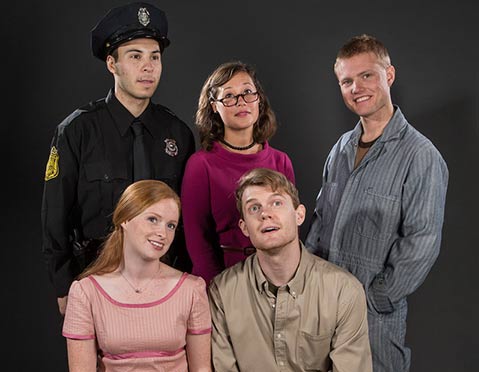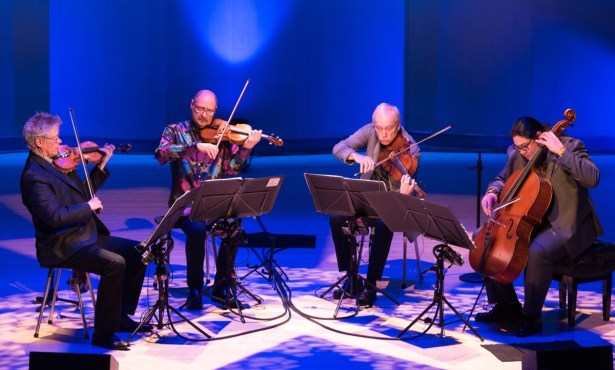UCSB Department of Theater and Dance Does Middletown
Will Eno’s Play About the Great and Unexamined Space Between

Playwright Will Eno admits to a lifelong preoccupation with the existential underbelly of life: birth, death, the hunger for purpose, and the menacing threat of meaninglessness that makes life feel sometimes like the toe-ledge of some precipice, a fragile and futile defense against oblivion. In the monologue Thom Pain (based on nothing), a finalist for the 2005 Pulitzer Prize in Drama (and staged locally this year by Genesis West), absurdity is feverishly analyzed, even relished, in a manic rant that violates the fourth wall and even accosts the audience. Middletown, which landed Eno the inaugural Horton Foote Prize for Promising New American Play in 2010, faces existential issues in a markedly different timbre, according to UCSB associate professor Tom Whitaker. “There’s a kind of sweetness, I think, about this play. Thom Pain is more savage,” he says.
Whitaker is directing the UCSB Department of Theater and Dance’s fall production of Middletown, a play that draws inspiration from Thornton Wilder’s Our Town yet is stamped with the insignia of a playwright who the New York Times calls “a Samuel Beckett for the Jon Stewart generation.” Performed by 12 actors and set in mid-20th-century Middle America, the play infuses the quaint relationships and familiar irksomeness of small-town life with the unsettling big issues that gnaw at the psyche from underneath.
You suggest there is a Shakespearean dimension to this play. How so? It’s buried, but I think it’s there. You know in Romeo and Juliet they say “two houses both alike in dignity.” Well, this also has two houses both alike in dignity — John Dodge’s house on one side of the stage and Mary’s house on the other. The scene outside the hospital in the second act — with the Landscaper planting essentially what is, to be a little sappy about it, the tree of life, from the middle of the stage — is a little bit like the gravedigger in Hamlet. As a matter of fact, he finds a rock and he pulls it out and he says, “I never know if I’m going to find a rock or a skull.” And at the opening of the play, the Public Speaker has a page-long litany of people he wants to welcome. And I think under that speech is a little bit of “the seven ages of man” [from As You Like It].
What do you make of this line, “It’s not rare, but it’s very lucky to be a person, just a regular person?” We were talking about that line in rehearsal last week. One of the actresses said, you know, all of us — I don’t think it’s limited to artists — we have constant anxiety about “Are we doing enough, are we special, are we making our mark, are we impressing?” This starts when we’re little kids, and it runs and chases us through life. I think part of the play is saying that we are enough because of who we are.
Middletown: A Play plays Friday, November 14-Saturday, November 22, at UCSB’s Performing Arts Theater. For info, call (805) 893-2046 or visit www.theaterdance.ucsb.edu.



